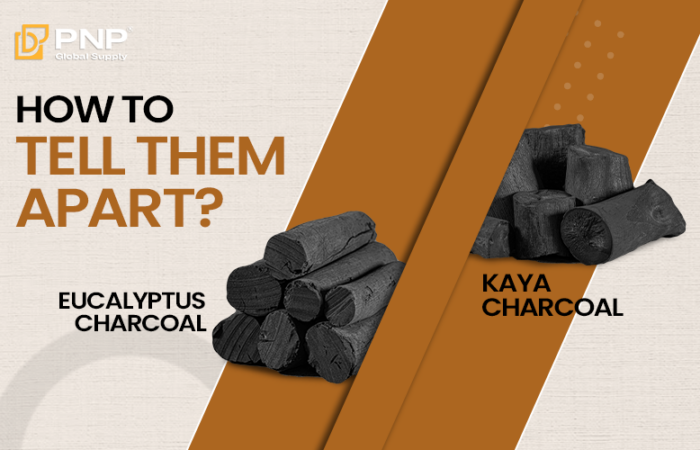In this article, we touch on the different types of charcoal export. We explain Planning unique features and uses around the world. Each type, from hardwood to coconut shell charcoal, supports specific industries and needs. Being aware of such types is essential for businesses operating in the charcoal trade to meet market demand effectively.
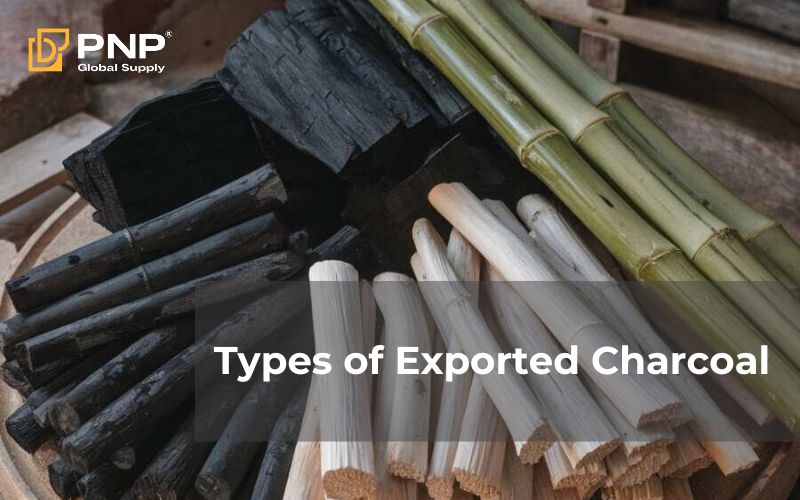
Introduction Types of Exported Charcoal
The charcoal types that are exported are of great importance to the various industries concerned globally, such as grilling, heating, and industrial purposes. Charcoal has a great reputation due to its high content of carbon and being energy efficient. It is a flexible product used at home and in large factories. Its importance in global markets comes from its ability to satisfy different energy needs and therefore turns out to be one of the most valuable items in international trade.
Types of Exported Charcoal
Hardwood Charcoal
The resilient trees are responsible for the formation of this product called wood charcoal; they usually comprise oak, hickory, or maple. Its intense heat can endure for a long time. Many users prefer this kind of charcoal in grilling and smoking since it produces constant high temperatures which help in food’s caramelization and improve taste.
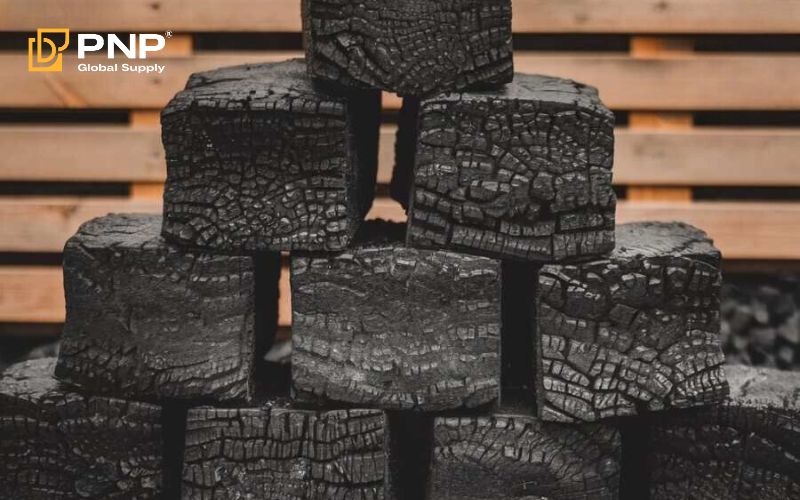
Coconut Shell Charcoal
Made from coconut shells, coconut shell charcoal is an environmentally friendly alternative. The product’s demand is high because of its clean combustion and low ash production, making it suitable for use in shisha and for barbecues (BBQs) and as an active carbon source in filters.
Bamboo Charcoal
Bamboo charcoal is obtained from bamboo plants and is valued for its absorptive qualities and eco-friendliness. It is normally used in air and water purification processes and also finds its place in skincare products since it naturally deodorizes just as much as it removes toxins.
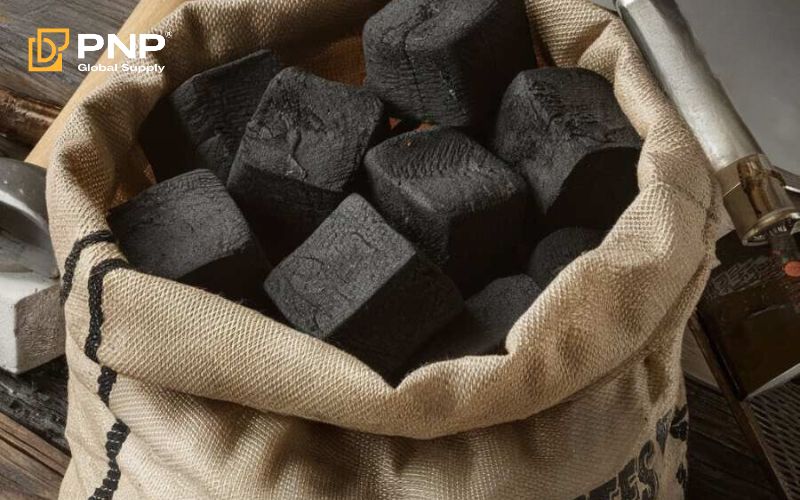
Briquettes
Compressed remains of wood and other natural materials, charcoal briquettes are manufactured. Because their shape is uniform and they burn at constant rates, they have been popular for home grilling because of consistency.
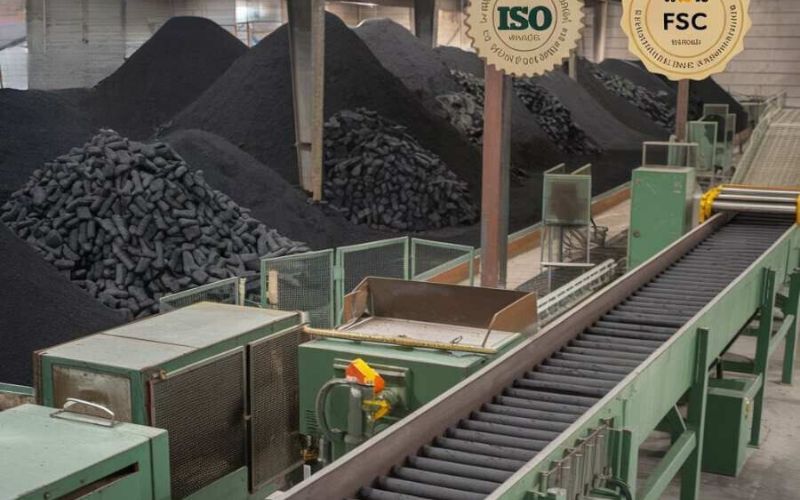
Activated Charcoals
Activated charcoal is one kind of charcoal that has undergone a special type of processing that includes millions of tiny holes. This makes it possess better absorption properties. Detoxifying purposes, purifying air and water from toxins, and being an ingredient in beauty products are some of the most common ways it is used in medicine and industries.
Quality Standards and Certifications
The export of charcoal will rely on high-quality standards and certifications because they need international & regional specifications. International standards (ISO) enable uniformity in products as well as safety whereas regional standards such as the EU’s & US set specific environmental and quality parameters. Some of these certifications include FSC (ForestStewardshipCouncil) which ensures sustainable sourcing and Carbon Neutral certification illustrates low environmental impacts on products. These standards and watchwords not only make products more marketable but also help to adhere to tough global trade rules.
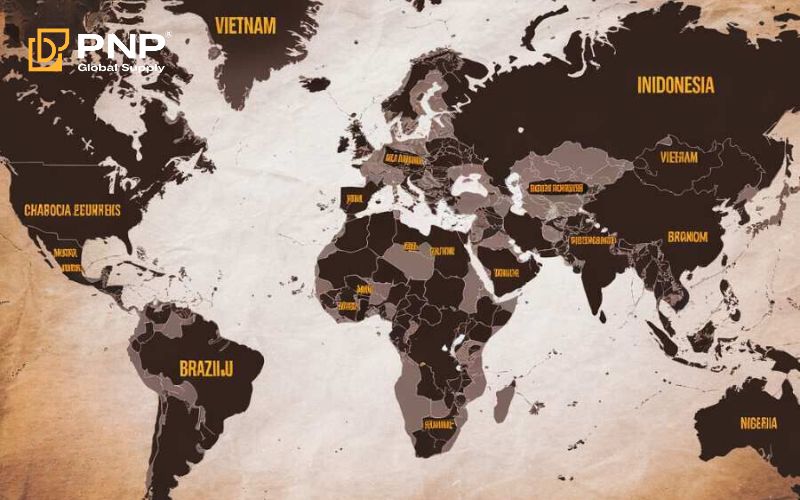
Applications of Exported Charcoal
The applications of charcoal exported are varied thus making it a valuable good in different industries. Charcoal serves as a source of fuel for grilling and industrial furnaces due to its concentrated energy output as well as constant fire. Being porous, charcoal makes perfect sense when it comes to purification of water and air because it can easily remove impurities. Charcoal acts like an amendment that soils use; thereby increasing their productivity hence enhancing crop yield. Similarly, charcoal is used in various industrial processes both during metal works or the production of chemicals where it is very much essential for manufacturing and refining different items.
Global Charcoal Market
Major Exporting Countries
Charcoal is mainly exported from Vietnam, Indonesia, Brazil, and Nigeria countries that are abundant in natural resources and have established production techniques. This has made them dominate the Global market by supplying quality charcoal.
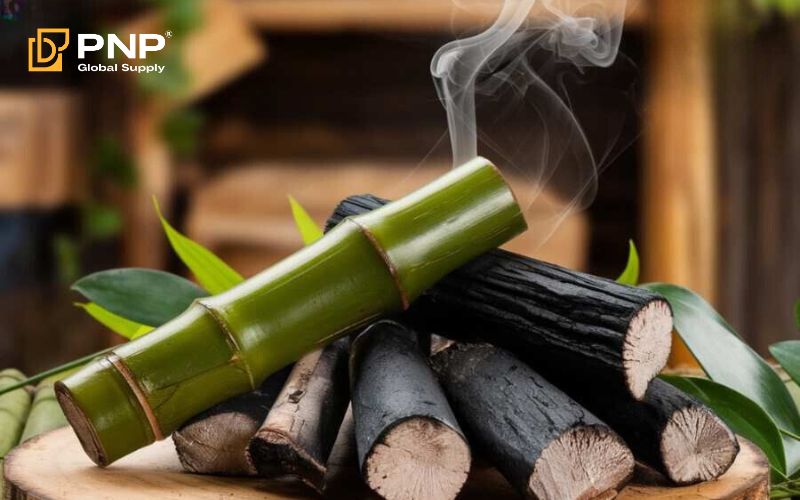
Key Importing Regions
Europe, North America, and the Middle East are the most significant importers of charcoal due to its high demand for use in grilling, industrial purposes,s or even shisha. For these markets to remain active they must import charcoal regularly.
Market Trends and Drivers
Global trends like growing preference for eco-friendly fuels and increasing demand in emerging markets have an impact on the world’s charcoal markets. Urbanization, outdoor cooking popularity, and industrialization are some drivers that continue to fuel this sector’s growth.
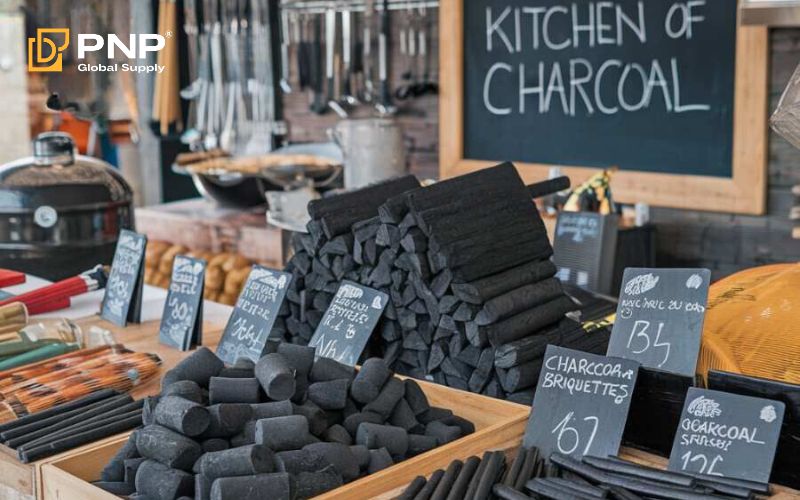
Conclusion
In conclusion, businesses aiming to satisfy the various and varying desires of global markets have to understand the many types of exported charcoal. Each class whether it could be hardwood, coconut shell, bamboo, briquettes, or activated charcoal possesses distinct advantages suited for particular usages. The quality and sourcing characterize charcoal supply as the market diversifies more. PNP Charcoal is an assurance of high-quality charcoal products. To get high-quality charcoal services contact PNP Charcoal, dedicated to providing excellent services.

